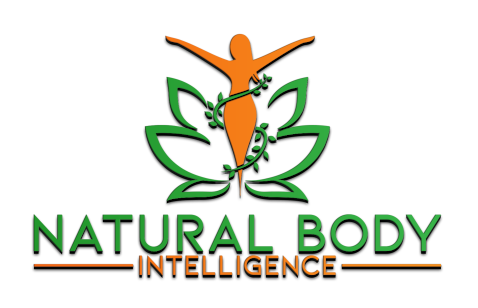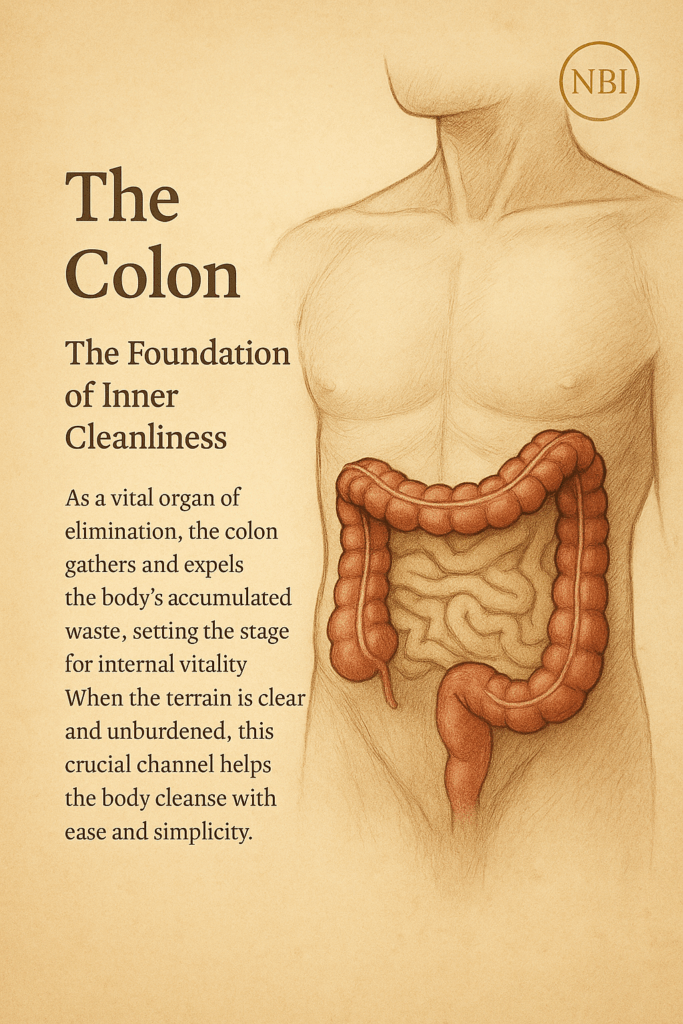The colon is one of the most essential yet overlooked organs in the body. It is the foundation of inner cleanliness, the place where the body gathers its accumulated waste before releasing it from the terrain. When the colon is functioning well, the entire system feels light, clear, energised, and balanced. When it becomes sluggish or overloaded, every other organ is forced to compensate, often leading to symptoms far away from the digestive tract. In Natural Hygiene, the colon is not simply a tube for waste but a vital instrument of purification and internal harmony.
Every day, the colon processes the remnants of what we eat, what we drink, and what the body removes from the bloodstream. It works in partnership with the liver, kidneys, lymphatic system, and skin, acting as one of the primary channels of elimination. When this pathway slows down, the body must find other routes to release its waste. This is why issues such as skin eruptions, headaches, fatigue, irritability, bloating, and even emotional heaviness often begin with a congested colon. The body never harms itself; it simply diverts material to whichever channel is open.
A clean colon creates space not just physically, but energetically. When the colon is functioning well, the blood is clearer, the lymph moves more freely, and the liver is relieved of the constant pressure of reprocessing old material. The whole terrain becomes easier to maintain. Yet in modern life, the colon is often overwhelmed. Highly processed foods, overeating, dehydration, stress, and long hours of sitting slow the natural muscular movement that keeps waste moving through the intestines. Over time, this creates stagnation, which the body tries to correct through symptoms.
These symptoms are communication. Constipation, gas, bloating, cramping, foul-smelling stools, or incomplete elimination are not conditions in themselves; they are messages. The colon is asking for rest, hydration, and simplicity. When the diet becomes heavy, oily, or dense, digestion slows and the colon receives too much material for its natural pace. In Natural Hygiene we understand that the body works best with foods rich in structured water, fibre, and living energy. Fruits, leafy greens, and fresh vegetables help the colon maintain rhythm and flow, while processed foods, stimulants, and animal products tend to burden the system.
Fasting is one of the most powerful tools for restoring colon health. When digestion stops, the body has a chance to redirect its energy inward, loosening old waste, clearing the bloodstream, and giving the colon time to repair the tissues that have been strained. Even short periods of fasting or days of fruit mono-meals can dramatically reduce pressure on the colon, often bringing relief from long-standing discomfort.
Movement also plays a vital role. The colon is stimulated by walking, stretching, deep breathing, and natural whole-body motion. Fresh air and sunshine awaken the nervous system and support peristalsis, the wave-like movement that carries waste forward. Hydration, too, is essential. Without enough fluid, the colon draws water from the stool, hardening it and slowing progress. Water-rich fruits are deeply cleansing and provide the fluids the colon needs without stressing the kidneys.
As the terrain becomes cleaner, the colon becomes more efficient, and the body’s energy begins to rise. Many people describe a feeling of lightness and clarity, as though the fog of internal stagnation has finally lifted. Mental calm increases. Emotional stability improves. Even the skin often brightens. This is because the colon is not only a physical organ but a reflection of how freely life is moving within us. When it is open and flowing, the rest of the body follows.
The colon teaches us about release. It teaches us that holding on physically or emotionally creates pressure, discomfort, and imbalance. When we create the conditions for natural elimination, the colon responds with gratitude, resilience, and ease. And when the colon is clean, the entire body benefits from the purity of the internal terrain.
How This System Communicates Stress
- Digestive discomfort
- Pain, stiffness and inflammation
- Skin changes and surface elimination
- Fatigue and exhaustion
- Emotional and nervous tension
Conditions Commonly Associated With the Colon
- Constipation
- Irritable bowel syndrome (IBS)
- Diverticulitis / diverticulosis
- Ulcerative colitis
- Chronic indigestion
- Digestive bloating
- Haemorrhoids

